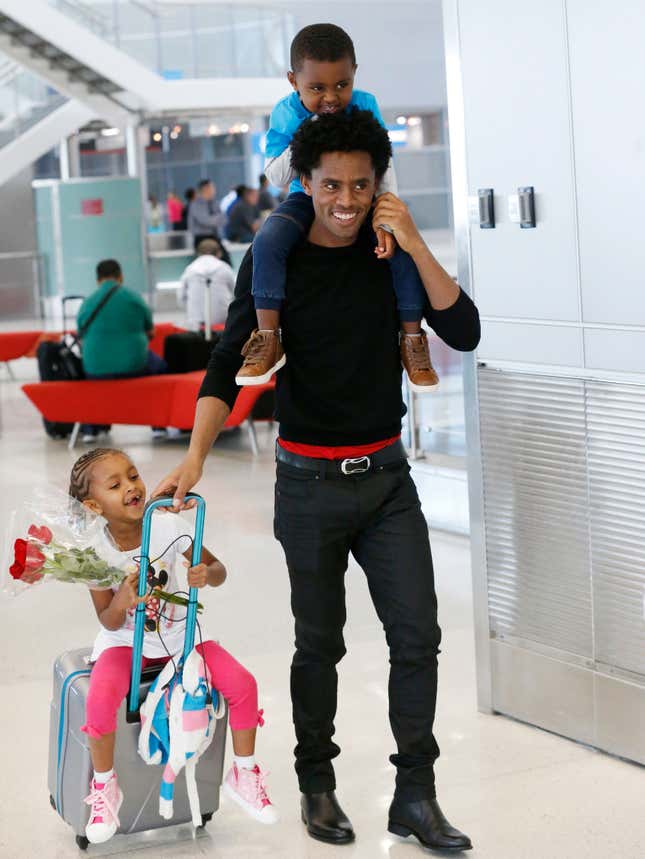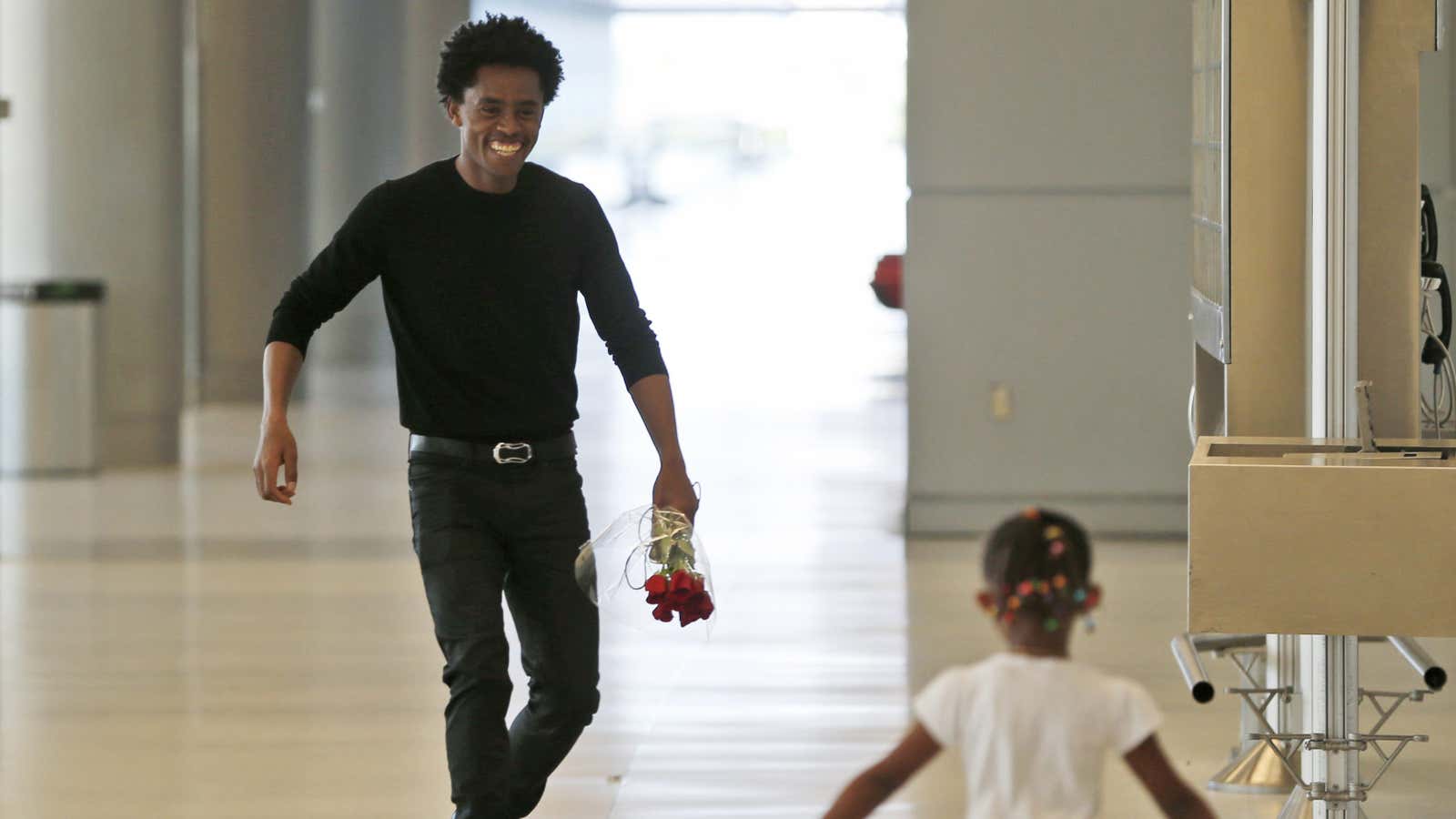It was a bittersweet Valentine’s Day reunion.
On Feb. 14, six months after crossing his wrists at the finish line at the Rio marathon, the Olympic silver medalist Feyisa Lilesa finally reunited with his family in Miami. That ended months of separation—bringing his wife Iftu, his five-year-old daughter Soko, and his three-year-old son Sora to the United States.
Lilesa’s gesture at the Olympics in Brazil was in support for Ethiopia’s Oromo protesters, who took to the streets in Nov. 2015 to demand land reform and full political participation. The government responded to both the Oromo and Amhara protests with force, killing hundreds and detaining tens of thousands, according to Human Rights Watch. Fearing for his life, Lilesa didn’t leave Brazil to go back to Ethiopia. In September, he was granted a non-immigrant US visa given to people with special skills and exceptional abilities.
“No one builds a family with the intention of going into exile,” Lilesa said in a press statement on Tuesday. “Unfortunately, exile, however dreadful, has become my fate and the fate of many Oromos.”

President Donald Trump’s ban on immigration from seven countries—and its ambiguous wording—had reportedly kept the family in a state of suspension. After a holiday in Miami, the family will go to Flagstaff, Arizona, where Lilesa lives and trains. Lilesa has in the past told Quartz Africa that he doesn’t plan to go back to Ethiopia until there’s a regime change.
Despite “this small personal victory,” Lilesa said that he won’t forget the plight of millions of Oromos and Ethiopians being “killed, beaten, imprisoned, dispossessed and kept in poverty.” Ethiopia is still under a six-month state of emergency, under which posting on Facebook, raising your crossed wrists, watching opposition diaspora television networks, and discussing issues with foreigners are all banned.
Lilesa said he will keep using his platform to speak against injustices and demand freedom for his people. “The struggle continues,” he said.
